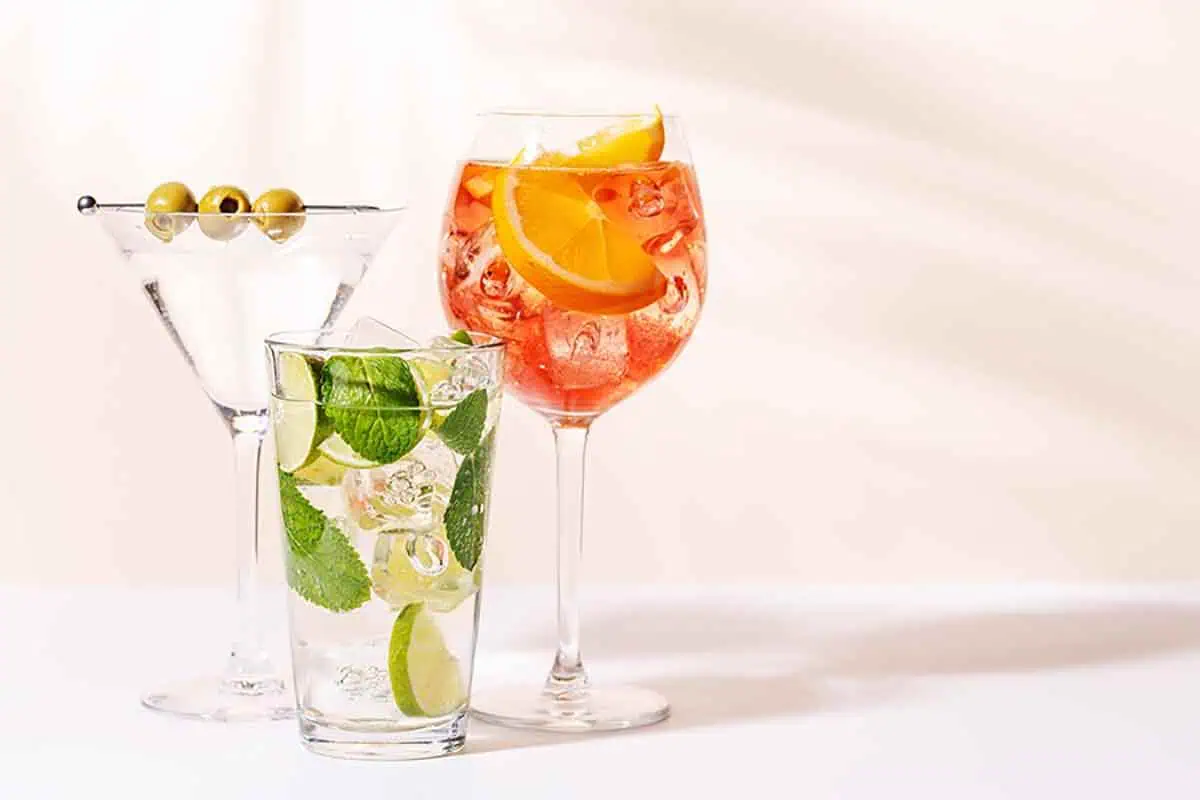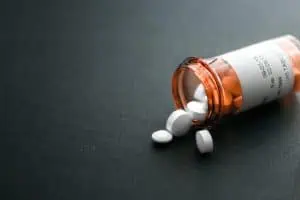At the risk of sounding like a major buzzkill, the hard truth is that when we’re focused on losing weight, alcohol is best consumed in infrequent, relatively small amounts. There are at least three major reasons to support this perspective. Before we take a look at these, it’s important to know that if reducing alcohol intake is a challenge, several of the medications we use can help curb the desire for a drink and we can offer robust mental health support toward reducing alcohol intake as well.
Calorie Content
Many of the biggest players in the alcoholic beverage world have presented lower calorie options in recent years. 100 calories in a beer seems to be a limbo bar that many beermakers have managed to shimmy under, with a myriad of options in the 95 to 99 calorie range. A few have gone further, with Miller64 and Budweiser Select 55 advertising their calorie count for a 12oz serving.
And while there are other options below 100 calories – a vodka soda with 1.5oz vodka checks in at a neat (sorry) 95 calories – there are two realities here that make these numbers a bit of a mirage: 1) it’s quite common that we don’t have just one or two drinks, and 2) there are a whole host of options that clock in at a substantially higher calorie count per drink.
In a clinic like ours, the biggest disparity between perception and reality probably lies in the generosity of our pours. Let’s use wine as an example. Five ounces of white wine measures 110-115 calories, but how many of us help ourselves and our friends to 6-8 ounces? Now we’re looking at 140-180 calories per glass. With multiple drinks, it begins to add up. When we’re out to dinner, we want to get our money’s worth, so a plentiful pour is much appreciated! For perspective, a 750mL bottle of white wine typically has 600-700 calories in it. Sweet white wines run closer to 800-900 calories per bottle.
One of the biggest keys to any sustainable weight loss plan is finding lower calorie foods that help us stay full for longer. Lower-calorie liquids aren’t much help here (certain protein shakes are an exception); very few alcoholic options (Guinness, aside) provide a prolonged feeling of fullness.
Accompanying Calories
We often don’t have that glass of wine with a simple house salad and call it a night. It’s cheese and crackers with two drinks before we go out for the evening. Or maybe we skip the pre-game, but we have a few drinks with a nice Italian meal. We all know that at a certain point, alcohol lowers our impulse control by seeping into our prefrontal cortex: perhaps, after a night on the town, we time it out perfectly to have a large pizza delivered right when we get home. To be clear, there is nothing wrong with any of these scenarios in a vacuum! Two drinks a couple times per month is no issue at all when creating a sustainable approach for weight loss. A similar amount on 3-4 occasions per week, when in frequent combination with other higher calorie adventures, can start to really pile up.
Compromised Sleep
Even after we’ve wrapped up our evening, our body continues to process the alcohol for the next several hours. Unfortunately, that means what we drank in the evening (and larger amounts consumed earlier in the day) can impact both the quality of our sleep and how much sleep we actually get.
Alcohol acts as a diuretic, which causes two issues: we’re more likely to have to get up during the night to use the restroom and we’re also more likely to wake up because we are dehydrated and thirsty! Any time we wake up during the night, we risk not being able to fall back asleep.
This disruption can impair sleep quality too, if it messes with our standard sleep architecture; ideally, we’ll cycle through the four stages of sleep (non-REM stages 1-3, and REM sleep) several times each night. But the bigger impact on sleep quality comes directly from alcohol itself: while the term ‘nightcap’ is a nod to alcohol’s ability to help us fall asleep, we now know that alcohol decreases the time we spend in REM sleep, a critical ingredient in a restorative night’s sleep.
Worse yet, if we have obstructive sleep apnea, alcohol can relax our airway muscles to worsen airway obstruction during sleep. Large amounts of alcohol may also compromise our brain’s response to breathing issues that occur during sleep.
The effects of alcohol may linger into the next day after a night of poor sleep. How does sleep impact weight loss? On a basic level, we’re often more tired the next day which may lower the likelihood we make it to the gym or give our best effort toward food planning and prep. Looking deeper, poor sleep quantity and/or quality seems to increase our hunger hormones like ghrelin and reduces the hormones in our body that tell us we are full. There is also strong data to suggest that after a poor night’s sleep, our cravings increase for certain foods while we lose a bit of our ability to control portions. We may not notice much of these effects after one poor night of sleep, but a series of nights with poor sleep can have a bigger impact on our appetite.
How can we work around the sleep concerns with alcohol? It can be helpful to have your last drink 3+ hours before bed to give your body a head start on metabolizing the alcohol before sleep. Others have proposed a mid-afternoon cutoff for the day’s alcohol consumption (morning mimosa fans, rejoice!). Of course, this only serves to limit the impact on sleep – our bodies still process the calories from alcohol consumption at any hour of the day.
Conclusion
The purported health benefits of alcohol have ebbed and flowed over the years, decades, even centuries. At this point, it seems fair to say that a majority of the best quality evidence tells us that the known health risks of alcohol far outweigh the possible health benefits. Case in point: even if there are modest improvements in heart health associated with red wine, alcohol increases the risk of high blood pressure, abnormal heart rhythms, and certain categories of heart failure.
When it comes to weight loss, balance and sustainability are our guiding principles. One glass of wine at the end of a stressful week, or 2-3 midday seltzers on the golf course with friends, isn’t likely to interfere much, if at all. But more frequent, heavier consumption, coupled with the oft-accompanying food calories, and the impacts on sleep, can collectively present obstacles to reaching our weight loss goals and maintaining them over time.





